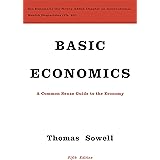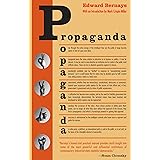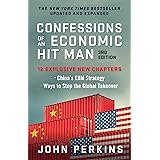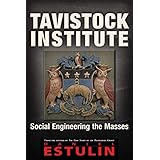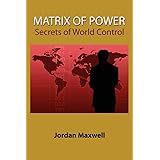




Download the free Kindle app and start reading Kindle books instantly on your smartphone, tablet, or computer - no Kindle device required.
Read instantly on your browser with Kindle for Web.
Using your mobile phone camera - scan the code below and download the Kindle app.

 Audible sample Sample
Audible sample Sample



Follow the author
OK
Web of Debt: The Shocking Truth about Our Money System and How We Can Break Free Paperback – Illustrated, January 1, 2012
-
Print length544 pages
-
LanguageEnglish
-
PublisherThird Millennium Press
-
Publication dateJanuary 1, 2012
-
Dimensions6 x 1.1 x 9 inches
-
ISBN-100983330859
-
ISBN-13978-0983330851
The Amazon Book Review
Book recommendations, author interviews, editors' picks, and more. Read it now.
Similar items that may deliver to you quickly
Editorial Reviews
Review
--Acres USA, April 2010
Most people need backing of some sort to break through and capture a share of the public mind, but Ms. Brown has seemingly accomplished this all by herself .... If we wore a thousand hats, they would all be doffed in respect.... There are in our opinion ... now Keynesians, Austrians and Brownians.
--The Daily Bell, Oct 8, 2009
Ellen Brown has translated a dense subject into a readable and fascinating story....Web of Debt not only demystifies money, but provides some thought-provoking and realistic solutions to our nation's dangerous dependence on a for-profit banking system that is sucking the financial lifeblood out of our nation.
--Thom Hartmann, April 2009
If there is one book, one newspaper, one blog, one article, that one should read to understand the current economic crisis, to understand the root of the problem, and to understand the solution, it is The Web of Debt . . . . The only ideology presented is one of fairness, integrity, and common sense.
-- Online Journal Reviews, March 2, 2009
Ms. Brown has taken two subjects considered boring - history and monetary policy - and turned them into a book as thrilling as any Tom Clancy novel .... This may well be one of the most important books you will ever read.
- American Free Press, April 21, 2008
About the Author
Product details
- Publisher : Third Millennium Press; 5th Revised ed. edition (January 1, 2012)
- Language : English
- Paperback : 544 pages
- ISBN-10 : 0983330859
- ISBN-13 : 978-0983330851
- Item Weight : 1.59 pounds
- Dimensions : 6 x 1.1 x 9 inches
- Best Sellers Rank: #250,347 in Books (See Top 100 in Books)
- #165 in Money & Monetary Policy (Books)
- #174 in Banks & Banking (Books)
- #543 in Economic History (Books)
- Customer Reviews:
About the author

Ellen Brown is an attorney, co-founder and chair of the Public Banking Institute, and the author of thirteen books and hundreds of articles (all on her blog at http://EllenBrown.com). Her books include the bestselling "Web of Debt" and "Nature's Pharmacy," co-authored with Dr. Lynne Walker, along with "The Public Bank Solution" and her latest book "Banking on the People." She graduated from UC Berkeley in 1967 and from UCLA Law School in 1977; practiced law for ten years in Los Angeles; then spent 11 years abroad, in Kenya, Honduras, Guatemala and Nicaragua, with her husband and two children. Her websites are http://EllenBrown.com, http://webofdebt.com, and http://publicbankinginstitute.org.
Customer reviews
Customer Reviews, including Product Star Ratings help customers to learn more about the product and decide whether it is the right product for them.
To calculate the overall star rating and percentage breakdown by star, we don’t use a simple average. Instead, our system considers things like how recent a review is and if the reviewer bought the item on Amazon. It also analyzed reviews to verify trustworthiness.
Learn more how customers reviews work on Amazon-
Top reviews
Top reviews from the United States
There was a problem filtering reviews right now. Please try again later.
Brown has done America a huge service in adding clarity and timeliness to the much needed and current hot topic of our economic well-being. I'm not sure, but I think this book went to press about a year ago, and feels as fresh as if it was written last month because everything is happening as feared. The economy is sinking quickly into a black hole. The new administration is making no noise about true banking reform. In fact, the Fed appears to have controlled the discussion by having its own leadership joining the administration, such as the head of the NY Fed Timothy Geithner as Treasury Secty. Nice going, Obama, there's some change Goldman Sachs and JP Morgan can believe in! Give the junkies the keys to the medicine cabinet. They are just going to pump more debt upon us while saving their own skins. This time I think even they are scared that they may have slaughtered the goose and we're all going down the rathole together, but you know they will survive unless we change the rules. It seems clear that the banking elites would rather take us all down with them then relinquish their death grip on our world economy. We have some alternatives to debt money but we need a national currency backed by the full faith and credit of the U.S. Govt (people). As Glenda the Good Witch says to Dorothy, you've had the power all along, you just didn't know it. We have the power, and we can turn this thing around in short order if we a) hold Congress accountable, and b) make them phase out Federal Reserve DEBT dollars and replace them with good old Greenbacks. I agree with those that believe specie-backed currency is a blind alley which can only lead to further ruin. Gold is a commodity and can be easily manipulated. If payments are to be made in gold, what happens when we have to make our foreign obligations in gold, what happens when we run out of it? If interest is paid in gold, eventually the lender gets all the gold. Under the Greenback system, the government spends money into circulation, debt free. Interest is paid back into the Treasury, reducing the need for taxes. The argument that the government will just flood the economy with paper is as worthless as Fed notes. What has the FED been doing for 100 years? Leave Austrian economics to the Austrians. Ron Paul, while I respect him for some things, has it wrong. Most of his followers blindly accept this "sound money" gold backed currency concept without investigation. And laissez faire doesn't work; banks and capitalism need regulation, and a pen to play in (some of these bankers need a penitentiary!).
Anyway, read the book, it's great!
It is useful to read the one-star criticisms but one needs to realize how incompetent most of their criticism is. Yet it is also important to see their valid points as well. It is important to grasp that a fiat system CAN work. But it can also fail with massive inflation unless rules are followed that prohibit the kind of reckless money expansion that we now have. I feel that point was not stressed enough.
The criticism that the author is a socialist is unfounded, but a fair concern. After all, if a government can freely finance roads and bridges, it can also build auto factories, electric utilities, etc. and hence produce a socialist state and eliminate free enterprise. There is certainly a fine line to walk once you presume funding is limitless. But I never got the impression that this was being advocated. The required rules to prevent inflation were mentioned, but could be easily overlooked with all the info provided in the book.
I used to be a "gold bug", thinking that the only stable money was gold/silver. While I would still argue emitting bills of credit should require a constitutional amendment, there is no doubt that our current legal system accepts fiat currency as legal tender. As an advocate of voluntary consent, I feel gold and silver are the only money that would be voluntarily accepted. Fiat currency requires force which is in opposition to my opinion that the greatest liberty we have lost is voluntary consent. Thus I think there must be money of substance used along side money of credit/trust. I didn't feel this was addressed well enough in the book.
So one of the biggest points must begin with the definition of money. Is it credit (requiring trust or force) or is it commodity (having intrinsic value.) I think the book makes a good case for the benefit of money that is credit. My first introduction to money as credit was from reading articles by Richard C Cook. I think this book would have equally opened my eyes. Yet it will not for die-hard gold bugs.
The topic of usury/interest is not addressed very well. I would point to S.C. Mooney's book Usury, Destroyer of Nations (no longer in print). The author seems to claim that only Islam had moral objections. In fact Christianity did (which also led to the expulsion of the money changers - aka the Jews - in most of Europe.) But with the Protestant Reformation, the understanding of the evils of interest were forgotten. (The word 'interest' was added to the English language to avoid the biblical condemnation of 'usury'. Noah Webster argued one should recognize the two words as the same.) But mathematically, any perpetual interest ultimately causes collapse (actually just a transfer of wealth) - unless the rate is never greater than the growth rate of population and productivity. I would argue all debt is fundamentally immoral and destructive and should not be part of a solution. But that certainly makes aggressive growth difficult. But is that a bad thing? Still, the point is to have all debt extinguishable. Currently in our system, no debt = no money.
One basic flaw in a gold/silver only money position is the fact that both labor and commodity money are not completely fluid. This is required if one is to postulate that prices will always find their level. It is obvious this has not happened even with the very fluid debt money that we have, as was pointed out in the book. After acknowledging that, some of my still gold-bug friends simply say, that's life, too bad. Even if it means families starve. There's always private charity. Therein lies my biggest complaint with gold-bugs - an absence of compassion with the desire to be free. On the flip side is the threat of tyranny. Lincoln, Hitler and others that have used fiat money successfully are also known for their tyrannical dispositions. Therein lies my biggest criticism of the book. It fails to recognize the good and bad in both positions to assist readers in properly evaluating proposed solutions. But then the biggest point is the crime of our debt money system which must be replaced. Either gold or debt free fiat money could solve a lot of problems.
Nevertheless, this is an excellent book to begin one's study of viable solutions to the criminal money industry that now exists.
Top reviews from other countries
Chose rare, des solutions sont proposées.
Ce livre devrait être lu par tout le monde et enseigné à l'école.








